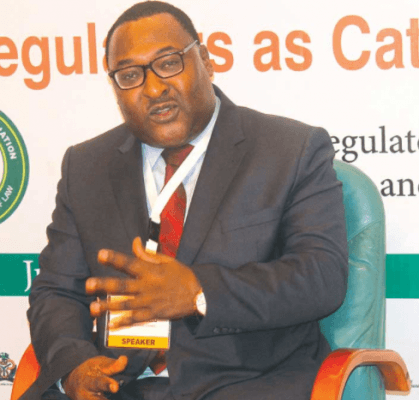Executive Secretary, Nigerian Shippers’ Council (NSC), Hassan Bello, has said that automation remains the key to curbing corruption and ensuring efficient port operations in the nation’s maritime sector.
Speaking in Abuja on Monday during a panel discussion on anti- corruption in the maritime sector, organised by the NSC in collaboration with the Economic and Financial Crimes Commission (EFCC) and other agencies of the Ministry of Transportation, Bello said lack of automation in the processes of cargo clearance breeds human contact and contributes to long cargo dwell time at the ports.
The NSC boss who frowned at the level of physical examination of cargoes conducted by the Nigeria Customs Service disclosed that cargo dwell time at the port has increased to 22 days as against what is obtainable in other neighbouring ports.
He said, “One of the things to get rid of corruption is deployment of technology. So, for me, automation is the key. For example, it takes six minutes to scan a container but it takes six hours for physical examination or manual examination of container. Which one should we choose? That is the difference between darkness and light. Cargo dwell time now takes 22 days at the port. The moment we automate our processes, it will ease all processes in the port and reduce human contact.
“I remember six years ago, I took some members of board of directors of Shippers’ Council to the port of Singapore, and when we were going round, nobody knew we were at the port and when we came back, some board members ask me, when are we going to the port? Which means they never knew it was the port we went to because there was actually nobody there.
“We need to automate our processes. We want short stay of cargo at the port. Five days average cargo dwell time. We want the port to operate 24 hours. When you go to the airport, it never sleeps, so why don’t we have that at the ports? By weekend, the ports shut. Nobody goes there, the Customs will not go, agents and even the shipping companies will not operate and that is what is wrong.
“We want to work and partner with the EFCC for risk assessment, it is important. But we have to set target. All of us must work together. Synergy is needed, we need to sit down and think about how we can salvage the industry because it is the industry that drives the economy. If we get the maritime industry right, then, we will go and shut the oil wells because the industry will finance the budget of this country over and over again. Even the oil and gas industry cannot operate without the maritime industry.”
Moderator of the panel discussion, Director General, Lagos Chamber of Commerce and Industry (LCCI) Muda Yusuf, said the problem of corruption in the maritime sector has become more of a systemic and institutional issue.
“We have created a system that has remained vulnerable to corruption. There is a component of bribery, which is a form of corruption, there is a component of extortion and looting of government treasury and some of these components are not easy to trace, and a lot of that happens in the maritime industry,” he said.
Yusuf commended the Shippers’ Council for partnering with EFCC in the fight against corruption in the sector.
